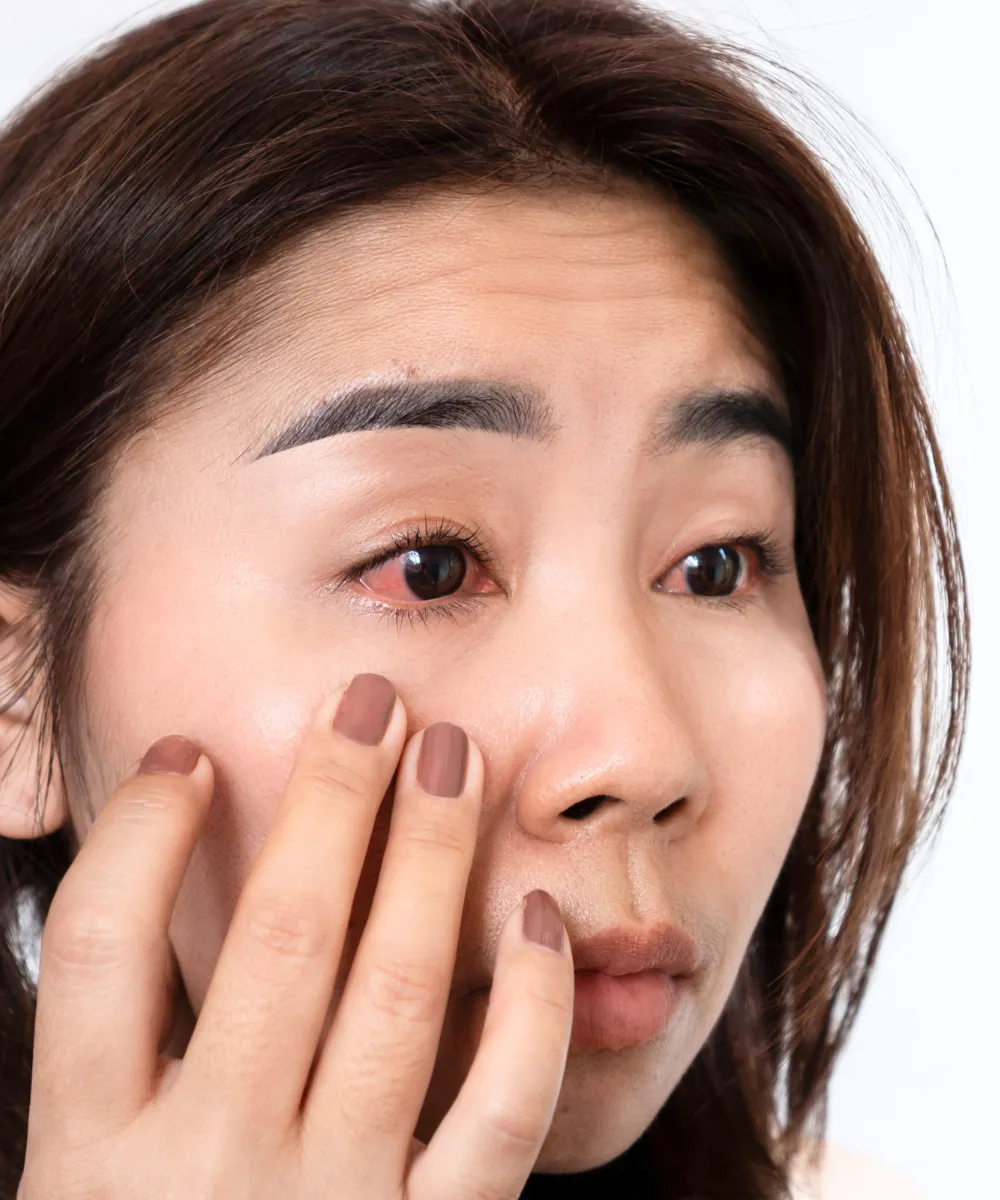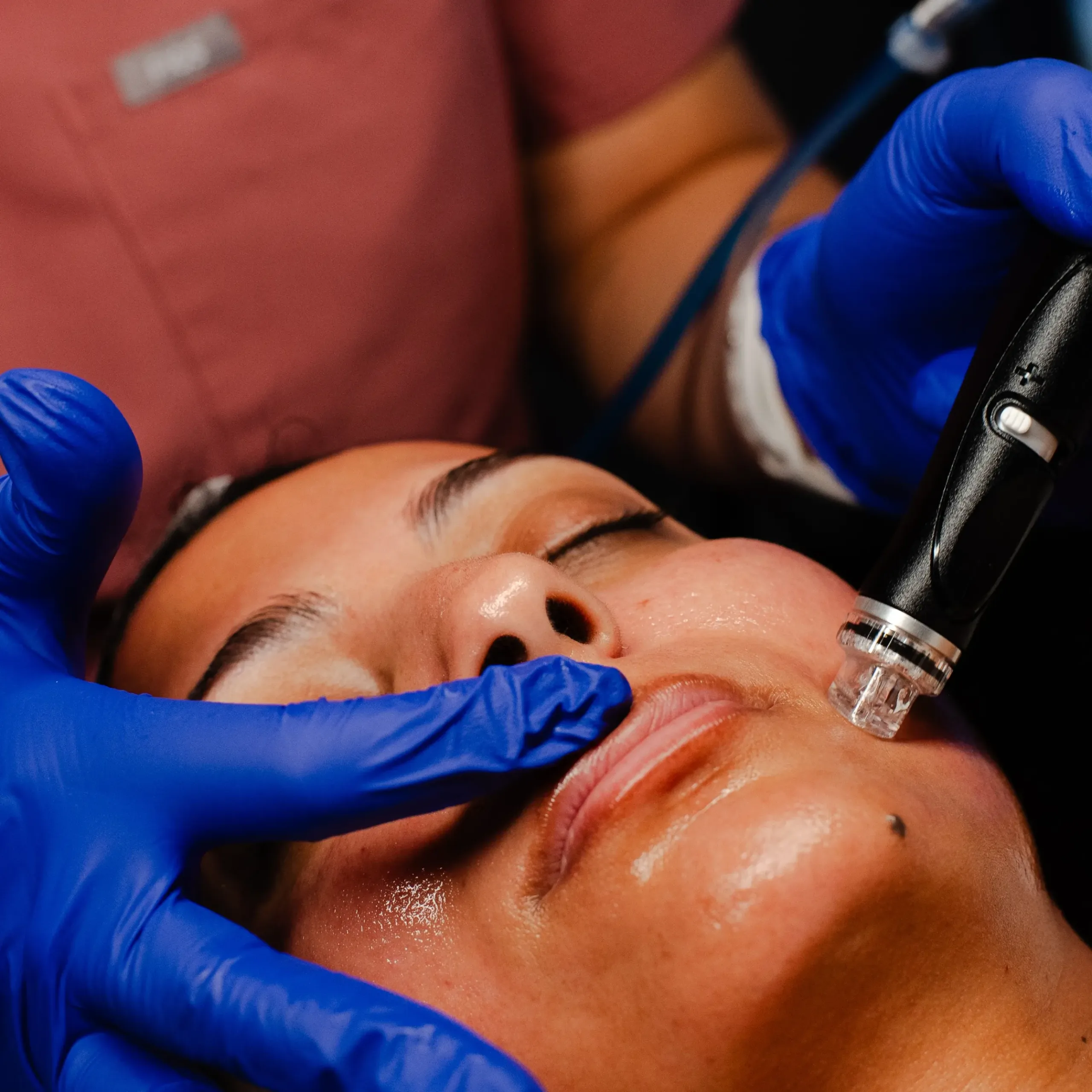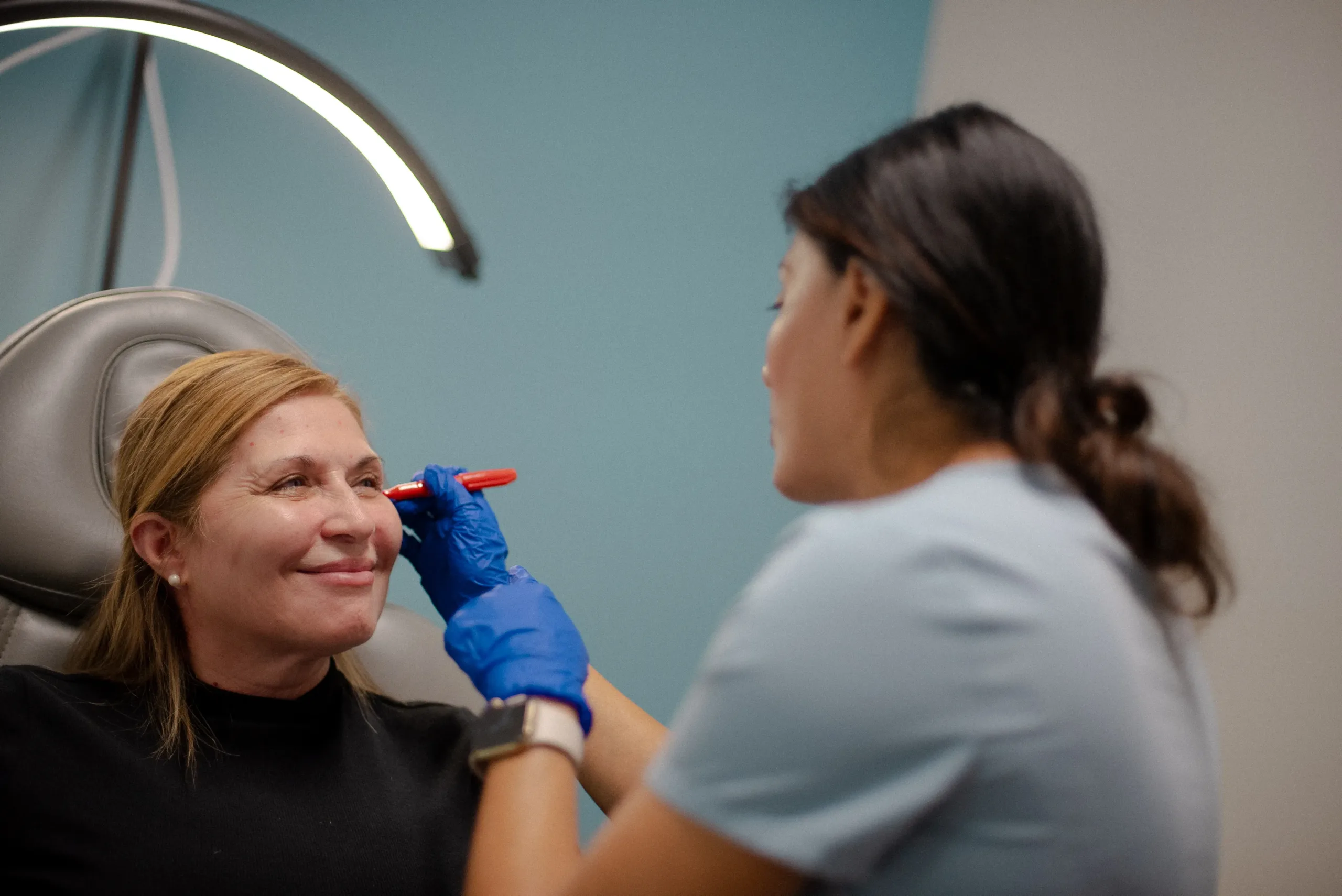Ocular Allergies
Similar to other allergies, ocular allergies are the result of the immune system identifying an otherwise harmless substance as an allergen. When allergens come in contact with the conjunctiva (the mucous membrane that lines the eyelids and covers the whites of the eyes), the immune system begins to fight the substance by creating antibodies that make your eyes release histamines. When your body is fighting the allergen, it can lead to uncomfortable symptoms in the eyes.
Ocular Allergy Symptoms Include:
- Itchy Eyes
- Red Eyes
- Achy Eyes
- Burning Eyes
- Watery Eyes

Types of Ocular Allergies
Seasonal Ocular Allergies
This is the more common of the two, and only occurs at certain times of the year. Usually beginning in spring, your body will start to be sensitive to the pollen and spores in the air. These symptoms can last through the end of summer and even into fall.
Perennial Ocular Allergies
This type of ocular allergy can occur any time throughout the year. It is generally the result to exposure to allergens such as dust mites, pet dander, or feathers found in your bedding. Smoke, perfume, air pollution, cosmetics, and some medicines can also trigger an allergic reaction.
Treatment & Prevention
Generally, the first step to preventing an ocular allergy is to avoid substances you know to cause a reaction. If you are unaware of what your allergies, our office can actually test you to identify exactly the substances you’re allergic to. The test is painless and takes just a few minutes.
However, in the course of your daily life, dodging all allergens may be impossible to do. Thankfully there are some steps you can take to soothe and protect your eyes when allergies take over:
- Wear glasses or sunglasses to limit the amount of pollen that enters the eye.
- Avoid rubbing your eyes. It will only worsen the effects of the allergen.
- Use a dehumidifier to reduce the amount of mold in your home.
- Drops like artificial tears or antihistamines can be used to soothe the burning and ache in your eyes and reduce the amount of histamines your eyes release to fight the allergen.
- Over-the-counter eye drops and oral medications may provide short-term relief for allergy symptoms; however they do not generally eliminate the problem.
- Allergy shots or immunotherapy like those found at Lake Nona Ophthalmology can be used to prevent your body from reacting to certain allergens.





